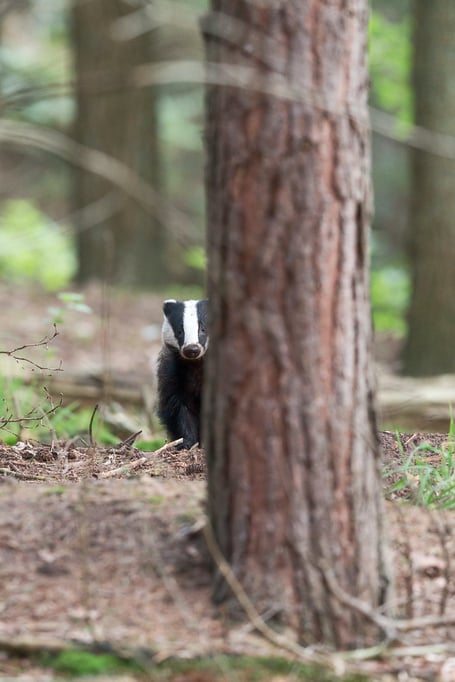In a recent announcement made by DEFRA over 210,000 badgers have been lost to the badger cull which is up to half of Britain's estimated population.
DEFA have revealed that at least 33,627 badgers were killed in 2022 as part of a controversial badger cull strategy.
The cull, which was introduced in 2013, has been used as a way of reducing badger numbers and therefore hopefully controlling the spread of bovine tuberculosis, a disease which can be spread by badgers and passed to cattle. However the Badger Trust have said: "Scientific research has repeatedly proved that culling badgers is an unscientific, inhumane, and ineffective approach to curbing a disease that is spread from cattle to cattle in 94% of cases."
Controlled shooting | % | Cage trapping | % | Total | |
2013 | 903 | 48.13 | 655 | 34.91 | 1876 |
2014 | 313 | 50.89 | 302 | 49.11 | 615 |
2015 | 743 | 50.65 | 724 | 49.35 | 1467 |
2016 | 5667 | 52.06 | 5219 | 47.94 | 10,886 |
2017 | 11,834 | 60.57 | 7703 | 39.43 | 19,537 |
2018 | 20,905 | 63.48 | 12,029 | 36.52 | 32,934 |
2019 | 24,645 | 70.35 | 10,389 | 29.65 | 35,034 |
2020 | 31,838 | 77.86 | 9054 | 22.14 | 40892 |
2021 | 29,544 | 87.70 | 4143 | 12.30 | 33,687 |
2022 | 29,574 | 87.95 | 4035 | 12.05 | 33,627 |
Total | 210,555 |
"Badger setts across England are empty"
The Badger Trust explained: "Already the most nature-depleted landscape of all G7 nations, Britain cannot afford to lose even more of its native species, particularly those which are vital to the health of our countryside. As ecosystem engineers, badgers dig and forage, rejuvenate the soil and provide shelter and nesting sites for other wildlife, like pollinating insects, birds and small mammals. However, shockingly, for the first time in history, badger setts across England are empty. Some of these setts can be hundreds of years old and form part of our natural heritage. Their vacancy, alongside a yearly tax-payer bill of £100 million and no significant decrease in bTB herd breakdowns, is the legacy of a government strategy that has not worked.
"The latest scientific analysis of Defra’s bTB figures, published in 2022, has shown that badger culling does not work as a cattle protection strategy. Instead, restricting cattle movements and enhanced biosecurity (neither of which are mandated under current government policy) are effective at reducing rates of bTB herd breakdowns.
"Epidemiological research has demonstrated that as few as 20% of farms are responsible for 80% of cattle movement, and large farms with over 1000 trade connections act as hubs for spreading disease.
"Why kill badgers when there is evidence of where to target stricter measures to protect the farm sector?
"Both Wales and Scotland have far fewer cases of bTB than England, and neither country culls badgers. Instead, they concentrate on cattle-based measures. With only 15% of English adults supporting badger culling, and bTB persisting in England despite the loss of up to half of Britain’s badgers, the government must finally accept that enough is enough – badger culling has not worked."
Peter Hambly, Executive Director of Badger Trust, explained: “Badger setts across England are lying empty for the first time in history. One of our most iconic native wild animals is being wiped from parts of our natural landscape because of the badger cull. In just a decade half of our population of badgers has been killed. “We know killing badgers isn’t the way to control bovine tuberculosis. Scientific research repeatedly proves that badger culling doesn’t work. The governments in Wales and Scotland don’t cull badgers with better results in reducing bovine tuberculosis.
"So, why won’t Defra end the badger cull and concentrate on more effective disease-control methods that will make a lasting difference to English farmers - enhanced biosecurity such as restricting cattle movements, more effective cattle testing and cattle vaccination.”
What is Badger Trust doing?
This year, the Badger Trust has launched an investigative study into the contemporary history of the badger culling policy. The report, expected to be published in Autumn 2023, will combine evidence from the scientific community with policy analysis and stakeholder engagement to show the true extent of the damage that has been caused by badger culling in England.
The report will outline the impacts of the cull on animal welfare, conservation, and the public and farming sector, whilst providing evidence that bTB can be controlled more effectively without culling protected wildlife.
"Overall, the loss of badgers is a twofold tragedy, as the loss of badgers will be a loss to our British cultural heritage and our already struggling ecosystems. The beloved brock is deserving of our protection, it is not deserving of a relenting government effort to see its annihilation. This disaster has gone on for too long. Enough is enough. It is time to end the cull." a spokesperson from the Badger Trust continued.
How can you help?
Stand up for badgers
Tell ten peopleShare the Badger Trust news releases and social media posts in your own social media, blogs and newsletters. Write to your MP and local news outlets.
Give to help badgers
A spokesperson from The Badger Trust said: "Badgers need your help now more than ever. Badger Trust is a small charity 100% funded by voluntary donations from local badger groups, supporters and members of the public. We can only do our work with financial and campaign support from people like you.
"Getting involved with your local group and signing up for a monthly donation plan with Badger Trust are two of the best ways you can help preserve this wonderful native species for generations to come."





Comments
This article has no comments yet. Be the first to leave a comment.